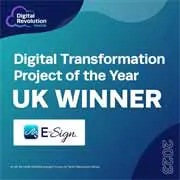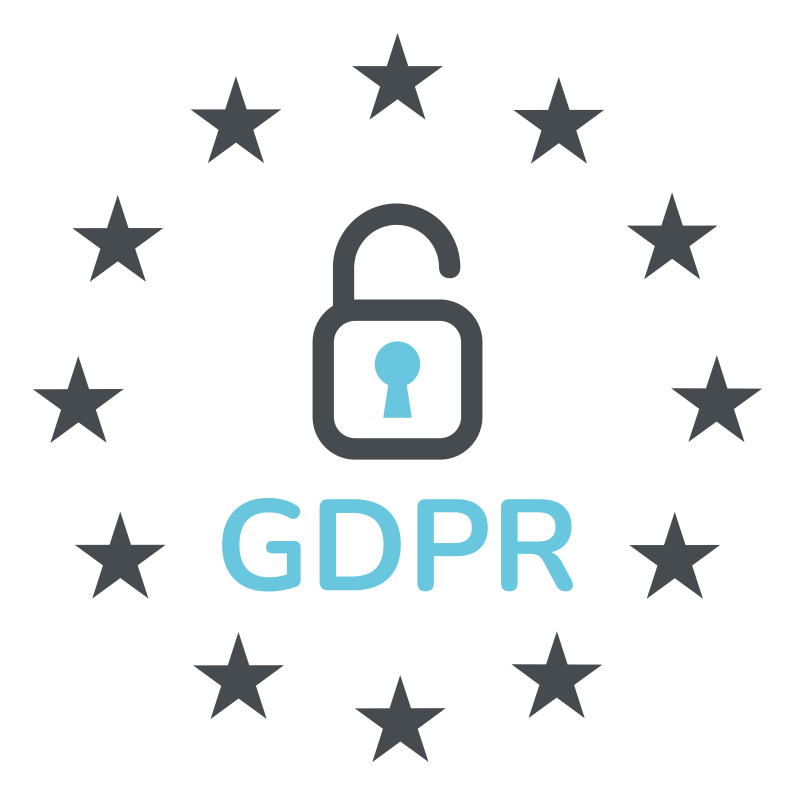How Digital Signatures Can Support Conveyancing
Luke Garrett
Director of Product
PUBLISHED
22nd July, 2024
Contents
Digital signatures have become an integral part of several key industries in recent years, including conveyancing. They have provided various benefits during property transaction processes, including the significant time reduction in completing conveyancing, which ensures a smoother experience for buyers and sellers. Also, the enhanced security features support the legality of signatures and the protection of signer data. In this guide, we’ll be exploring in more detail the ways in which eSignatures can support conveyancing.
The growth of eSignatures in conveyancing
Conveyancing processes mostly relied on paper-based documents for many years until the COVID-19 pandemic in 2020. This global event marked a significant shift to a more digital approach, as conveyancers were unable to meet clients in person, causing major delays in property deals.
Digital signatures and digital document solutions resolved this issue, and in July 2020, the HM Land Registry announced that it would now accept digital signatures on property documents, with the introduction of Practice Guide 82. By doing so it demonstrated an industry-wide recognition of the need for change in conveyancing. The acceptance of electronic signatures allowed the industry to begin working remotely, which was an important step in its digital transformation journey.
The pandemic sped up the modernisation of the conveyancing industry and its acceptance of digital change. Conveyancers began using online ID checkers and sending documents electronically, as well as using case management systems to digitise records. This allowed the industry to keep operating efficiently during the pandemic.
Additionally, it also highlighted the problems with the traditional methods of conveyancing, with longer completion times and an unstable mortgage market losing customer trust. Therefore, the need for continued improvement became apparent and the growth in implementation of e-signatures has been an ongoing trend beyond the pandemic.
E-Sign’s involvement with Practice Guide 82 framework
Prior to 2020, the HM Land Registry did not accept digital signatures for their documents. When the pandemic impacted the property market, and the HMLR needed to transition to a digital format, the E-Sign team and Managing Director, Thomas Taylor played a key role in the creation of Practice Guide 82 for the acceptance of e-signatures. E-Sign helped to establish a framework for suitable compliance and assisted with the creation of the policy to legalise the use of electronic signatures on property documents such as deeds, transfers of ownership, leases, mortgages etc.
The difference between e-signatures and mercury signing
In 2019 the Law Commission published the report ‘Electronic execution of documents’ which enabled the approach of ‘executing documents by virtual means’ when all parties were unable to be physically present during the signing of a deed.
This is known as mercury signing and gives conveyancers the opportunity to sign documents remotely, without in-person meetings. The process involves parties printing, hand signing, and scanning the documents to make a completed digital copy. These scanned documents are then added to the final deed.
Electronic signatures are different to mercury signing as they remove the need to print and scan the documents. The document can be kept in a digital format and signed electronically, which is a much more efficient method of completing important conveyancing paperwork, saving all parties time and resources.
What are the benefits of e-signatures in conveyancing?

There are many ways in which e-signatures and digital document solutions can be used to support conveyancing processes. Which leads to various useful benefits for conveyancers, property buyers and sellers, including:
- Greater efficiency – the conveyancing process has earned a reputation of being often slow and stressful, but the adoption of eSignatures can help to make the process smoother. Therefore, it won’t take as long to complete and minimises the hassle for buyers and sellers during high value transactions.
- Contributing to sustainability efforts – by removing paper from the process, conveyancers can reduce their carbon footprint and make a positive contribution towards the national goal of net-zero carbon. Also, it can support better land-use planning.
- Cost savings – not only can switching to digital documents from paper save your carbon emissions, but it can also save money too. This is because you won’t need to allocate a budget for paper, ink, printing, postage, or other related costs, meaning that money can be used in other important areas of your property business.
- Increased transparency – using digital document technology allows the relevant individuals to have easier access to property data, which supports better decision making within your organisation.
- Further growth opportunities – increased digitisation within the sector can support further development for property businesses. As the increased efficiency and cost savings will allow them to take on more clients and maintain long-lasting relationships that generate income in the future.
eSignatures and minimising the risk of fraud
One of the most important considerations for conveyancers and property businesses when adopting a digital solution is security. When handling such important transactions it’s essential that documents and signatures are as secure as possible, to minimise the risk of fraud. The COVID-19 pandemic saw a rise in property fraud that left the sector concerned about risks and liabilities. A secure e-signature system can be the ideal way to resolve this issue.
The HM Land Registry strives to make conveyancing faster and safer through fully digital processes. They believe this can be achieved using digital ID checks to reduce fraud, an approach which has proven to be effective in the EU. You can learn more about digital identities and the introduction of Digital Identity Wallets in our other guide ‘What is a Digital Identity Wallet?’.
Electronic signatures and digital ID checks provide an extra layer of security by verifying who is signing the document, and protecting it from cyber threats with robust systems and protocols in place. They are both effective in reducing the risk of fraud, which protects homeowners and conveyancers from property-related crime.
E-Sign’s Conveyancer-Certified Signatures
The E-Sign platform provides users with the highest standards of security and identity verification, to maintain the authenticity and integrity of sensitive property documents. Our tools and features have ensured our eSignatures are fully compliant with the HM Land Registry Conveyancer-Certified electronic signature standards. This is because they are:
- Uniquely linked to and are capable of identifying the signer
- Created in a way that allows the signer to keep control
- Linked to the document so that any subsequent changes to the data can be detected
Electronic witnessing for conveyancing

Another way E-Sign can support conveyancing is through our eWitnessing feature. This means that any witnesses that are required for a document during property transactions can be identified, without them needing to be physically present.
Documents that typically require a witness include power of attorney, land transfers, shareholder agreements, and loan documents. The traditional method of completing a witnessed signed document could be very time consuming as you would need to organise when your witness is available to sign the paperwork. By using E-Sign’s eWitness solution, you can save time, money, and resources on your conveyancing processes.
eWitnessing can be done electronically in a similar way to the paper-based approach. It simply involves the digital document being backed by technology that provides detailed data regarding the witness signature. This includes the geolocation, IP address, date, and timestamp of the eSignature.
The process works by the signer being sent the document via email, when filling in the document they will be required to include the name and email address of their witness before adding their signature. Once their signature has been applied to the document, the witness will receive a separate email requesting them to add their details and signature.
In order for a deed to be successfully electronically signed by a witness, it must be received via their personal email address. Also, they can only access the document after inputting a six digit one-time passcode (OTP) sent by SMS to their mobile phone. When their signature is added, the device, browser, version, and IP address are captured as evidence to determine the location, day and time of when they eWitnessed the document being signed.
A streamlined solution for the conveyancing sector
The conveyancing industry regularly encounters many challenges such as complex rules and staff shortages, but transitioning to digital methods of working can help resolve these challenges. This is because removing paper and optimising transactions makes conveyancing more efficient and eases stress for conveyancers.
Reducing pressure on conveyancers
Digital document solutions can support conveyancers who are already facing strict rules and regulations in completing their role. By effectively managing and organising signed documents in a secure digital platform, conveyancers can save time and focus their attention on supporting their clients with property transactions.
Overcoming staff challenges
Hiring and retaining staff in the conveyancing sector can be difficult due to the heavy workloads and time-consuming tasks. Trying to look for errors and manage SARs often leads to conveyancers feeling overwhelmed. However, with the right solution in place, certain administrative tasks can be automated, which therefore helps conveyancers to become more productive and improve staffing issues within the industry.
Conclusion
Electronic signatures are a highly effective solution that can support the conveyancing sector to improve efficiency in its document processes. If you’re working in real estate or conveyancing and are looking for a secure and reliable digital solution, E-Sign can help.
E-Sign is an industry leading provider of e-signature and digital transaction management services to businesses across the UK and internationally. Contact us today to discuss your requirements with a member of our digital transformation team and they will be able to ensure you can implement a tailored solution that meets the specific needs and challenges of your organisation.
You can also get started with E-Sign by registering for our 14-day free trial, which will allow you to explore the features and functionality of the platform and how it can benefit your document processes.
 Facebook
Facebook
 X (Twitter)
X (Twitter)
 LinkedIn
LinkedIn











